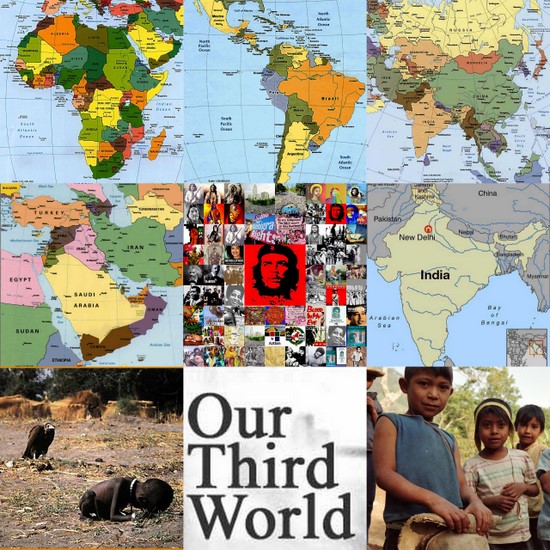http://www.laep.org/access/attitudes/chicano/
--------------------------------------------------------------------------------
Title: The Chicano Moratorium
Subject: History
Author: Letty, Roosevelt High, Grade 12
Date: May, 1998
Unit: Boyle Heights: America in the Mirror
--------------------------------------------------------------------------------
The Chicano Moratorium
On August 29, 1970 the Chicano Moratorium took place on Whittier Boulevard in Boyle Heights. This historical march occurred because Chicanos opposed the Vietnam War since Chicanos had been the highest number of casualties in the war proportionate to their number in the population.
The Brown Berets
The Chicanos urged non-violence for all Chicanos who participated in this event, and the Chicanos had agreed on this despite their anger towards the war. Chicanos knew that senseless hatred would ruin everything. Most importantly, it would ruin their chances of being recognized. The Brown Berets were the motivators of the Chicano Moratorium.
On December 19, 1969 the first Chicano Moratorium committee (CMC) event had started at Obregon Park . It was attended by about 2,000 people. This rally was organized by the Brown Berets. The Brown Berets were a group of Chicano youth who opposed the war as well as organized the Chicano Movement in Los Angeles. To organize so many people for this important cause took great courage from the Brown Berets. Rosailo Munoz was a co-chairman of the Chicano Moratorium committee. He had a second rally on February 28, 1970 at Laguna Park (Ruben Salazar Park).
A scene from the blowouts
5,000 people marched in the rain. The time grew close for the Chicano Moratorium.
The Chicanos just wanted a chance to express their opposition to the war and to show that it was prejudice which led to Chicanos being killed out of proportion to their numbers in the general population. The Chicanos wanted a chance and finally August 29 had come. The Chicano Moratorium had begun at 10:00 on Whittier Boulevard. The marchers had walked festively and non-violently until they reached the corner of Eastern Avenue and Whittier, where a young man was warned by a parade monitor after he threw a bottle at a police car. The marchers reached Laguna Park (Ruben Salazar Park) and they were very hot from their long march, so some walkers went to Green’s Liquor store to quench their thirst. The owner, named Morris Merck, thought that since there were so many people they would steal some merchandise so he called the police.
The crowd complained that he was against them.
People stayed through the rain
The police had came in squad cars to chase any shoplifters but by the time they tried to reinforce any kind of warnings, the problem was solved and everybody paid for their purchases and then everything went back to normal. The cops had plenty of indication that the march would remain peaceful but they were more prepared for a war than for peace. During the Moratorium people carried crosses to symbolize the deaths of those who had died during the Vietnam war. People wanted a change in the way the war was turning out, and they wanted to show people that the Chicanos were just as good as the next race and that hatred is just a waste of valuable time that could be used to make things better for their children's future. In a way, the police were over-reacting to small problems.
They had no need to be violent. The Chicanos had thought the police were there to serve and protect them but they were wrong. The police at the Moratorium had plowed into the crowd of Chicanos at Laguna Park and began to battle anybody who resisted their force.
People carried crosses
The cops wanted the rally to stop and because people had gotten up to defend themselves, the cops threw tear gas.
The people were trapped in the park with no way out, so they began to throw things back at the police. As a result of this brutality from the police, there were three deaths that occurred and among these deaths was Ruben Salazar. Ruben Salazar was a journalist for the Los Angeles Times. He wrote columns about how Chicanos were treated and deprived of their rights. The police asked him to “tone down” his writings but Ruben Salazar did no such thing. The Chicanos were more upset about his death than about the incidents at the Moratorium. Ruben Salazar was drinking beer in a restaurant called The Silver Dollar with two other Mexican officials when police warned people to leave the restaurant. When they refused, the cops fired tear gas canisters into the place, causing a shell to hit Ruben Salazar in the head. He died of a brain hemorrhage.
Ruben Salazar
In conclusion, the Chicano Moratorium was destined to be a great impact on everyone but really it was just the first step in their struggle for complete equal treatment. The Chicanos felt that police, along with other people, were afraid Chicanos would take over their jobs, cities, and towns. This is why people became mean and violent.
People who don't take time to really know what’s going on always use bad judgement. When it’s time to react to something that could be good, their ignorance prevents them from recognizing the truth. In reality, people who are slammed or mistreated because of their race or their way of life will always win in the end. In this world, it's only the strong who survive, not those who step on people to get to the top.
Bibliography
<>+<>+<>+<>+<>+<>+<>+<>+<>+<>
Liberation Now! Blog
Humane-Rights-Agenda Blog
Join the Humane-Rights-Agenda Yahoo Group!
Join Aztlannet_News Yahoo Group!
Aztlannet Website
<>+<>+<>+<>+<>+<>+<>+<>+<>+<>
Tuesday, August 29, 2006
Subscribe to:
Post Comments (Atom)


No comments:
Post a Comment